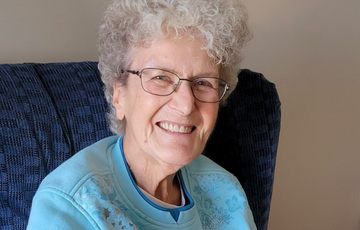Services
News & Events

Innovative program allows Cowichan residents to transition temporarily between hospital and home
“If I need assistance, it is right here.” Ruby Neubauer, an 80 year old Duncan resident, is relaxing in her recliner at The Meadows assisted living home while she recuperates from a lengthy illness.
Seniors find strong social connections and improved health at adult day programs
Frail seniors and their caregivers have come to rely on Adult Day Programs for the social connections that contribute to cognitive and physical well-being.

